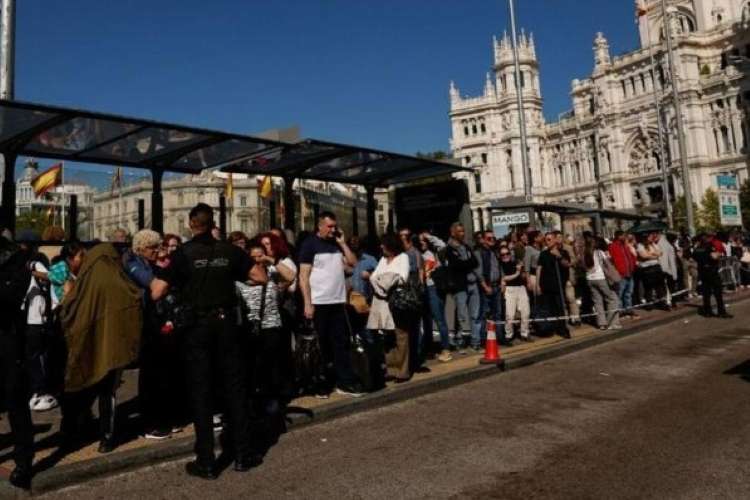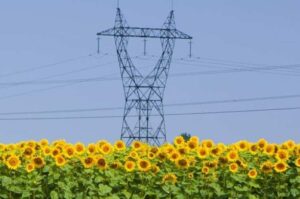
Spain and Portugal, usually basking in the glow of their solar-rich days, were plunged into unprecedented darkness last week. On the face of it, the event was a freak technical failure. But as the details emerge — or fail to — it becomes clear that the Spain-Portugal blackout of April 28 was not merely an accident of timing or technology. It was a system failure. A collapse of assumptions, oversight, and, perhaps most dangerously, ambition untethered from capacity.
The outage began, according to Spain’s grid operator Red Eléctrica, with a technical disturbance at 12:33 p.m. — a blip lasting a second and a half. That, in the world of electricity grids, is an eternity. In that brief moment, Spain lost 15 gigawatts of power, about 60% of its active supply. What followed was a cascade of grid failures, disconnection from the French electricity network, and a continent’s edge teetering on chaos. Portugal was dragged in due to its integration with the Iberian system. Planes were grounded, metros stalled mid-track, and even the lifeline of mobile communication collapsed.
Yet nearly a week later, we still do not know what exactly triggered the first shock. The plants involved haven’t been named. The nature of the original malfunction remains obscured by bureaucratic fog. In a country that prides itself on transparency and technical sophistication, this opacity is more troubling than the blackout itself.
READ I Supreme Court’s Bhushan Power ruling jolts IBC playbook
A grid too fragile for the green dream
Spain’s ambitious energy policy is no secret. At midday on April 28, solar photovoltaics accounted for over 60% of Spain’s electricity, with wind and nuclear adding another 23%. The country had even begun exporting surplus power to France and Morocco as prices plunged below zero. But this oversupply was also the first warning bell.

Reports show that solar generation plunged from 18,000 MW to 8,000 MW in mere seconds, despite unchanging sunlight. Experts now suspect an automatic system-wide shutdown triggered by desynchronisation — solar installations not built to respond swiftly to frequency anomalies. In short, Spain was generating more electricity than it could manage, and the grid lacked the kind of inertia that gas and nuclear plants provide — the ability to ride out fluctuations and buy time for recovery.
A modern grid needs balance. While renewable energy must and should be the future, it demands accompanying investments in storage, frequency control, and base-load power. These did not keep pace in Spain. Nuclear stations were idling at half-capacity due to low market prices, while gas plants were held in reserve. At the critical moment, there was simply too little stability in the system.
Political capture, technical consequences
Red Eléctrica, the body charged with maintaining grid integrity, is technically semi-private but functionally politicised. Its leadership is routinely drawn from political ranks, including its current president Beatriz Corredor, a former housing minister. This is not a trivial detail.
An energy roadmap designed with electoral slogans instead of engineering blueprints will inevitably hit the wall. Aiming for “100% renewables” without hard-nosed realism about grid stabilisation, base-load power, and interconnection infrastructure is like promising a supersonic aircraft without engines. It may bring votes, but it won’t fly.
Prime Minister Pedro Sánchez was quick to blame private operators, even as his government has presided over a phase-out of nuclear power. His critics, including Isabel Díaz Ayuso and the conservative opposition, accused him of risking energy security for ideological purity. The truth likely lies in between — a failure of technical oversight worsened by political interference.
Europe’s weakest link
The Spain-Portugal blackout should be viewed as a European warning, not merely an Iberian mishap. Spain’s connection to the rest of Europe is woefully inadequate. The 400kV line from France to Catalonia was lost for nearly an hour. Had Spain been more tightly integrated into the continental grid, France might have stabilised the situation faster, and Portugal might have avoided the worst of the blackout. Morocco came to the rescue with 900 MW of power across the Strait of Gibraltar, while France eventually ramped up supply to 2,000 MW. But the delays show how isolated Iberia remains in energy terms.

This is not just Spain’s failure; it’s Europe’s. For all its climate targets and green dreams, the EU has not yet built a truly continental grid capable of handling disruptions with the agility a 21st-century economy demands.
Lessons in humility from Spain-Portugal blackout
The human toll was tragically real. Three elderly Spaniards reportedly died from carbon monoxide poisoning after using makeshift power sources. More than €1.6 billion in economic output was likely lost, according to the Spanish business association CEOE. Thousands of passengers were stranded on metros and trains, hospitals shifted to diesel generators, and police officers regulated traffic by hand.
Yet perhaps the greatest damage is to public confidence. A modern European nation went dark — and no one, not even the grid operator’s CEO — could give a coherent explanation within 24 hours. If this is the future of green transition, citizens may rightly wonder: are we trading carbon emissions for chaos?
The Spain-Portugal blackout of April 28 teaches us three hard lessons. First, renewable energy, while indispensable, must be backed by investment in grid stability — storage, frequency regulation, and smart controls. Second, base-load power sources such as nuclear and gas are not optional luxuries but critical buffers. And third, energy infrastructure must be run by technically competent, politically independent leadership, not by apparatchiks of ruling parties.
The time has come for Spain and the rest of Europe to reimagine the green transition not as a battle of ideologies — renewables versus nuclear — but as a question of resilience and engineering. It is no longer enough to celebrate carbon-neutral days if they come with the risk of nationwide blackouts.
The lights came back. But until Spain corrects the structural vulnerabilities that led to the April 28 failure, the next outage may not be so merciful.
